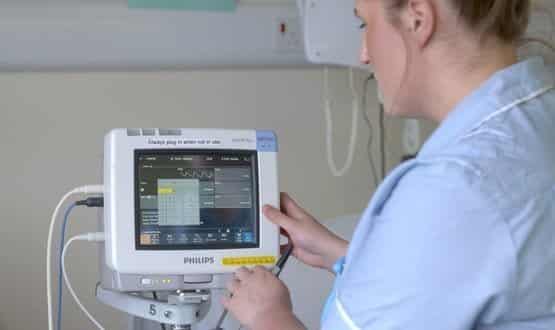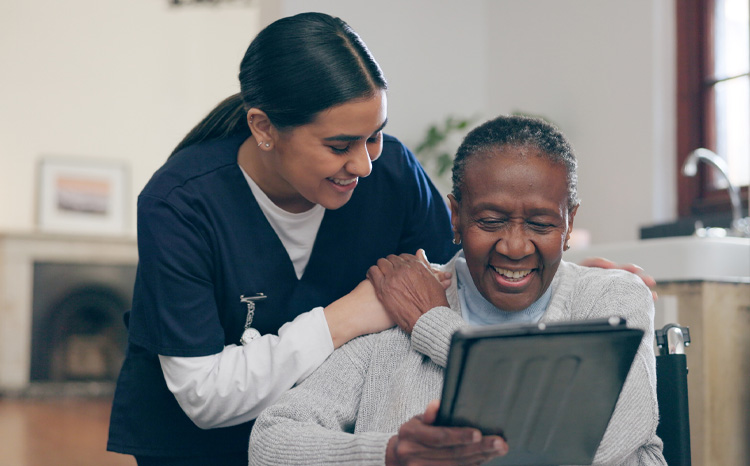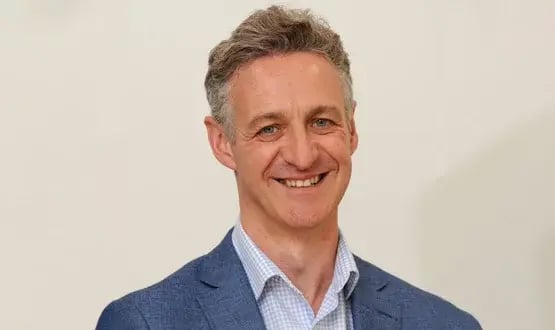Philips’ new patient monitoring system deployed in London
- 20 July 2017

Philips has developed a new patient monitoring system which provides automation of early warning system (EWS) scores.
Having recently launched at the National Hospital for Neurology and Neurosurgery (NHNN) in London, the EWS score is calculated directly on the monitor at the bedside and uploaded to a central dashboard and patient administration system (PAS).
It allows nurses and the patient’s care team to respond and intervene earlier to deterioration.
The aim of Philips’ general ward solution is to help minimise manual processes, reduce non-care workload at the bedside, remove the risk of human error and improve compliance with EWS protocols.
“The system can be deployed to one ward or to all the low acuity wards in a hospital, each with their own unique configuration”, a Philips spokesman said.
“UK findings within the Future Health Index, a recent report commissioned by Philips, revealed that 88% of health care professionals believe integration of the health system will make the quality of care better.”
[themify_box icon=”info” color=”gray”]
Patient monitoring system outcomes:
- a reduction in intensive care mortality of patients who were transferred out of general ward areas by 40%
- cardiac arrest reduction of more than 80%
- reduction in serious events by more than a quarter
[/themify_box]
NHNN deputy divisional clinical director Sally Wilson said: “As a leading UK neurological and neurosurgical hospital, we are committed to trialling new solutions to improve patient care.”
“This is an ideal site for the launch of a new EWS system in a general ward environment.”
“It is designed to facilitate faster interventions to improve patient care, by alerting care teams to the earlier, often more subtle, signals of patient deterioration”, the spokesman said.
At the original test site, Betsi Cadwaladr University Health Board in Wales, a study (VITAL II) headed by Chris Subbe (acute, respiratory and critical care medicine consultant at Bangor University), found that the general ward solutions assisted with an 86% reduction in cardiac arrests. Other significant reductions were found in mortality, ICU admissions, ICU sickness and ICU mortality.
“The systems’ connect clinicians with the right skills to those patients who are most at risk and with customisable escalation protocols, the software helps to deliver care that is matched to individual patients’ specific needs”, Subbe said.
Philips spokeswoman Jodie Bridge said: “This global-first innovation by Philips has demonstrated significant benefits to patients and hospital teams.”
“At a time of increased pressure on national health systems, we are committed to lead the development of new technologies that help meet patient and clinician needs and improve patient outcomes.”
NHNN is part of University College London Hospitals NHS Foundation Trust, and is the UK’s largest dedicated neurological and neurosurgical hospital.




